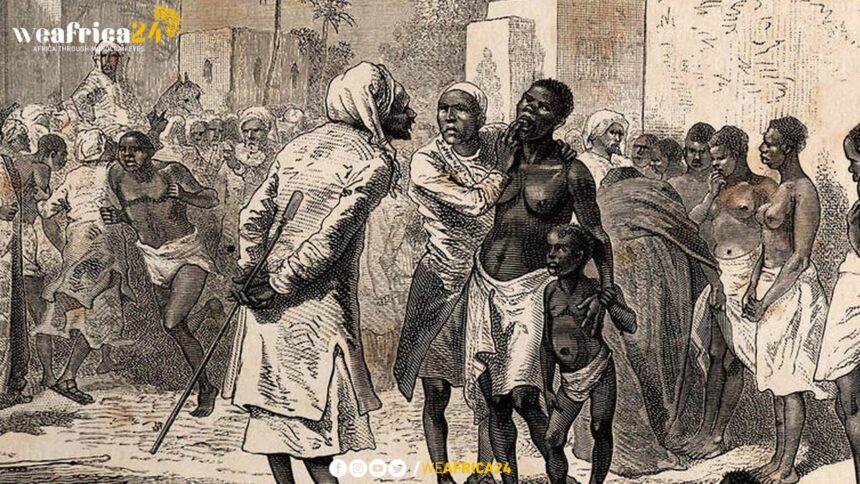In “Africa, Memories of a Continent,” we delve back in time, starting from the 7th century, tracing the caravans that crossed the Sahara with convoys of slaves. When did this practice truly begin in North African countries? How did it shape Maghreb societies? And why is slavery in Muslim spheres sometimes contrasted with the transatlantic slave trade?
To explore these questions, we consulted M’hamed Oualdi, a professor of modern and contemporary Maghreb history at Sciences Po Paris and author of “L’esclavage dans les mondes musulmans: des premières traites aux traumatismes” (Amsterdam Editions), and Mohamed Yahya Ould Ciré, former Consul General of Mauritania in Guinea-Bissau, a political science Ph.D. from Paris II University, and author of a dissertation on “The Abolition of Slavery in Mauritania and the Challenges of Its Implementation.”
M’hamed Oualdi explains that the concept of slavery in the Muslim world is multifaceted. There were multiple Muslim societies where a massive and violent slave trade occurred, particularly from sub-Saharan Africa to North Africa and the Near East. Additionally, there was a significant slave trade from East Africa, involving Ethiopian men and women destined for North Africa.
Oualdi emphasizes that it is crucial to recognize that within these Muslim worlds, individuals were also enslaved from Northern Europe and the Caucasus. The underlying logic was akin to that in Christian and ancient Jewish societies: non-Muslims engaged in combat against the Muslim world could be enslaved. In warfare, captured prisoners, including women and children, could be taken captive and sold into slavery rather than killed.
This practice was embedded in the socio-political fabric of the time, where enslavement was a common fate for those captured during conflicts. Such historical insights help to understand the complexities of slavery in the Muslim world and its long-lasting impact on the societies involved.
By examining the narratives and research of experts like Oualdi and Yahya Ould Ciré, we gain a deeper understanding of the historical intricacies of slavery in Arab-Muslim societies and the enduring legacies that continue to influence the present.







